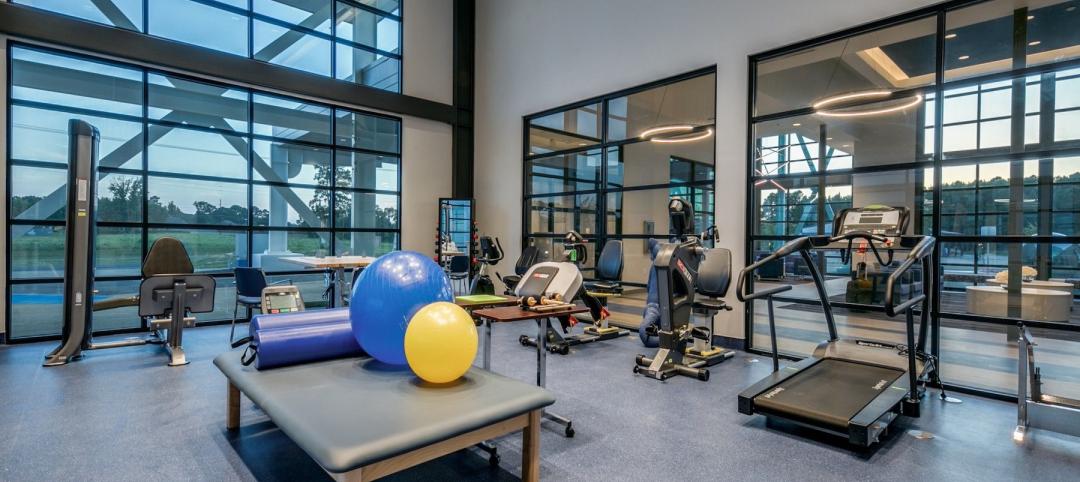Dow Building Solutions announced two Research and Development (R&D) test facilities located at the Dow Building Solutions’ North American headquarters in Midland, Mich.
The R&D “Wall Assembly Research Center” and “Spray Foam Application Technology Research Facility” have been built to test and evaluate insulation, air sealing and weatherization systems in a controlled lab environment in order to provide customers with real-world data of how the products will work together and perform and function in the field.
The Wall Assembly Research Center is a 1,600 sf wall system research lab that has over 30 interchangeable wall sections that enables Dow to test various residential and commercial wall systems.
It also allows for the testing of exterior wall system components to see how they stand up to outside elements and perform in a cold climate zone. Systems being tested include rigid and spray insulations, exterior cladding, and various framing techniques, in all cardinal directions.
The Wall Assembly Research Center is wired with a state-of-the-art monitoring system that allows researchers to collect, analyze and process the performance of each of these interchangeable wall systems over extended periods of time.
Dow collaborated very closely with Building Science Corporation to design and construct this unique facility in a way that the data collected can help further develop Dow building envelope products and systems and provide answers to the most relevant industry questions.
The second research test facility is a 2,000 sf spray booth and lab that enables researchers to evaluate the application of new spray foam chemistries and methods. The Spray Foam Application Technology Research Facility was created to test liquid-applied construction solutions and materials, such as spray polyurethane foams and weatherproofing systems, to help better understand how spray products work in both small and large-scale applications while using a variety of application equipment such as refillable cylinders and 2-component high-press spray rigs. Beyond testing and gathering data on chemistries and application methodologies, the research facility is also being used to provide education and training on the application and safe handling of these spray foam products that contribute to the creation of a better performing building envelope. BD+C
Related Stories
Education Facilities | Nov 30, 2022
10 ways to achieve therapeutic learning environments
Today’s school should be much more than a place to learn—it should be a nurturing setting that celebrates achievements and responds to the challenges of many different users.
75 Top Building Products | Nov 30, 2022
75 top building products for 2022
Each year, the Building Design+Construction editorial team evaluates the vast universe of new and updated products, materials, and systems for the U.S. building design and construction market. The best-of-the-best products make up our annual 75 Top Products report.
K-12 Schools | Nov 30, 2022
School districts are prioritizing federal funds for air filtration, HVAC upgrades
U.S. school districts are widely planning to use funds from last year’s American Rescue Plan (ARP) to upgrade or improve air filtration and heating/cooling systems, according to a report from the Center for Green Schools at the U.S. Green Building Council. The report, “School Facilities Funding in the Pandemic,” says air filtration and HVAC upgrades are the top facility improvement choice for the 5,004 school districts included in the analysis.
Architects | Nov 29, 2022
Three decades and counting, Tinkelman Architecture has helped reshape New York’s Hudson Valley
The full-service firm has designed more than 100 projects in this region, including several multifamily buildings currently in the works
Retail Centers | Nov 29, 2022
'Social' tenants play a vital role in the health of the retail center market
After a long Covid-induced period when the public avoided large gatherings, owners of malls and retail lifestyle centers are increasingly focused on attracting tenants that provide opportunities for socialization. Pent-up demand for experiences involving gatherings of people is fueling renovations and redesigns of large retail developments.
Giants 400 | Nov 28, 2022
Top 200 Office Sector Architecture and AE Firms for 2022
Gensler, Perkins and Will, Stantec, and HOK top the ranking of the nation's largest office sector architecture and architecture/engineering (AE) firms for 2022, as reported in Building Design+Construction's 2022 Giants 400 Report.
Legislation | Nov 23, 2022
7 ways the Inflation Reduction Act will impact the building sector
HOK’s Anica Landreneau and Stephanie Miller and Smart Surfaces Coalition’s Greg Kats reveal multiple ways the IRA will benefit the built environment.
Multifamily Housing | Nov 22, 2022
10 compelling multifamily developments debut in 2022
A smart home tech-focused apartment complex in North Phoenix, Ariz., and a factory conversion to lofts in St. Louis highlight the notable multifamily developments to debut recently.
Digital Twin | Nov 21, 2022
An inside look at the airport industry's plan to develop a digital twin guidebook
Zoë Fisher, AIA explores how design strategies are changing the way we deliver and design projects in the post-pandemic world.
Healthcare Facilities | Nov 17, 2022
Repetitive, hotel-like design gives wings to rehab hospital chain’s rapid growth
The prototype design for Everest Rehabilitation Hospitals had to be universal enough so it could be replicated to accommodate Everest’s expansion strategy.

















